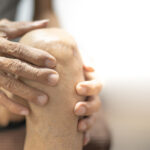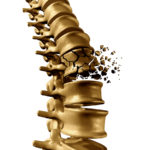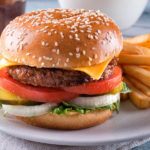By Bonnie Jenkins, Advanced Natural Wellness
If you’ve ever experienced a painful bout of kidney stones or gallstones, it’s likely you don’t want an encore. Experts estimate that five percent of Americans develop kidney stones at some point and 10 to 15 percent develop gallstones. And, although these stones don’t always pose problems, when they do the symptoms can make you miserable.
So why do these troublesome stones form in the first place? Kidney stones form when substances in urine – usually calcium and oxalate – crystallize in the urinary tract. Gallstones, on the other hand, are solid clumps of cholesterol that form in the gallbladder when there is more cholesterol than it can easily dissolve. The gallbladder releases bile salts, which help digest fat and handle cholesterol. But when something goes awry, crystals form and eventually harden into stones.
Of course, the best strategy is to stop these stones from forming in the first place. While you can’t do anything about a family history of stones or advancing age (both key risk factors for stones), you can make a few simple lifestyle changes to ward off the formation of these pesky – sometimes painful – stones.
Focus on Fluids
Drinking plenty of liquids is an easy way to prevent kidney stones. Experts recommend drinking enough water to produce two quarts of urine in a 24-hour period.
Lemonade may work even better. That’s what Duke University researchers concluded when they administered “lemonade therapy” – enough to produce 1.5 to 2 liters of urine a day – to 12 kidney stone patients for four years.
MD Exposes the Hidden Danger to Your Eyes

When your eyesight starts to fail, it's a real problem. Suddenly you can't go to the grocery store... you can't get to the doctor if you have an emergency... you can't meet your friends for dinner…
Your "regular" doctor doesn't have time to keep up with the latest research. And the same goes for eye doctors. They go to school to learn how to fit you for glasses and contacts, but have no way of preventing the damage and loss of eyesight that threatens your freedom and independence.
Let me show you something that explains a LOT about how your eyes work.
In my FREE Special Report, I'll show you a HUGE, untapped resource for your eyes that safely and naturally restores clear, effortless eyesight.
Click here to get started...
Coffee also seems to protect against both gallstones and kidney stones. In two large studies, people who drank two to three cups of caffeinated coffee each day were less likely to develop gallstones than nondrinkers. Decaf coffee and regular tea did not protect against gallstones, but all three beverages protected against kidney stones, probably by boosting total liquids.
What Not to Eat
If you’ve ever been diagnosed with kidney stones, you doctor probably told you to avoid spinach, tea, beans and maybe even whole wheat. The culprits in these foods are oxalates – chemical compounds that bind with calcium and are found in most kidney stones. But new evidence suggests that, unless you have a real propensity for kidney stone formation, you might be able to eat these healthy foods again. Experts believe that diet accounts for only 10 to 15 percent of the oxalates that linger in the urine of people who tend to form kidney stones. So, while it may be best not to go overboard on high-oxalate food, you needn’t avoid them completely.
There are a couple of things you actually do need to cut down on – whether you suffer from kidney stones or gallstones. One is meat. A study of men with a history of kidney stones found that those who reported eating less animal protein were only half as likely to suffer a recurrence within five years as those who ate the most animal protein. Red meat especially may raise your risk. In a study tracking 45,000 men for 16 years, researchers found that men who got more iron from meat were more likely to develop gallstones.
But meat isn’t the only food that promotes stones. You should also cut down on the amount of salt you use. Research links a diet high in sodium with an increased risk of kidney stones. And, while no one has a definitive answer, sodium’s role may involve promoting calcium excretion, leaving less of it to bind with oxalates.
Stonewall Stones With Supplements
Even if you suffer from recurrent kidney stones or gallstones, there’s hope. Getting enough calcium via supplements can prevent oxalates from crystallizing into kidney stones. Eat low-fat dairy foods, canned sardines and salmon (with bones), broccoli, kale, calcium-fortified orange juice and soy foods are all rich in calcium. But to get the amount you need to banish stones, you should also take 1,200 mg. of supplemental calcium daily.
It’s also important to mind your magnesium. In a trial of more than 42,000 men, those getting the most magnesium were 28 percent less likely to develop gallstones than men who got the least. The reason is that magnesium keeps insulin levels low – which decreases the cholesterol content in your bile. As a bonus, it also promotes the absorption of calcium – and both minerals build stronger bones.
Are You Suffering From...
- Love handles and a pot belly
- Romance that isn't what it used to
- Forgetfulness and inattention
- Low (or no) strength and endurance
- A sex drive that's shifted into neutral...or worse
If so...you may have Mature Male Burnout. Click here to discover more about this unique condition and what you can do about it.
One Last Thing . . .
Being overweight – especially around the waist – significantly increases your chances of developing gallstones, especially if you’re a woman. A large clinical study showed that being even moderately overweight makes it more likely you’ll suffer from gallstones at some point in your life. The reason is that the amount of bile salts in your bile is reduced, resulting in more cholesterol. And increased cholesterol reduces gallbladder emptying.
Exercising is one way to help get rid of excess weight. And one study found that people who were the most active were 62 percent less likely to develop gallstones than those who were inactive. Just make sure you don’t opt for a crash diet since that, ironically, can also trigger gallstone formation. As the body metabolizes fat during prolonged fasting and rapid weight loss the liver secretes extra cholesterol into bile, which can cause gallstones.
This Just In . . .
It’s no secret that grapes are good for you – especially the compound in grapes known as Resveratrol. Now, researchers at the University of Wisconsin have given the term “young at heart” a whole new meaning after discovering that Resveratrol actually protects the heart against the effects of aging.
In their study, mice were given a diet supplemented with Resveratrol starting at middle age until old age. The mice experienced changes in their genes much like mice that are put on a calorie restricted diet designed to slow the aging process. But the most striking thing was how Resveratrol, like calorie restriction, blocked the decline in heart function typically associated with aging.
The really exciting thing about this study, though, is the amount of Resveratrol used. Most studies have used ridiculously high doses to boost health and extend life. But the Wisconsin researchers found that relatively low doses still triggered the age-related benefits. Of course, human studies on this red wine compound and heart health haven’t been conducted yet – but why wait?
You may be able to reap the benefits of Resveratrol by combining a daily glass of red wine providing about 640 mcg. with Resveratrol supplements containing 600 mcg. According to the study’s authors, a glass of wine or supplements that contain even small doses of Resveratrol are likely to represent a robust intervention in the retardation of cardiac aging.
Cheers!
References:
Borghi L, Schianchi T, Meschi T, et al. “Comparison of two diets for the prevention of recurrent stones in idiopathic hypercalciuria.” New England Journal of Medicine. 2002; 346:77-84.
Kang DE, Sur RL, Haleblian GE, et al. “Long-term lemonade based dietary manipulation in patients with hypocitraturic nephrolithiasis.” Journal of Urology. 2007; 177:1358-1362.
Tsai CJ, Leitzmann MF, Willett WC, et al. “Heme and non-heme iron consumption and risk of gallstone disease in men.” American Journal of Clinical Nutrition. 2007; 85:518-522.
Tsai CJ, Leitzmann MF, Willett WC, et al. “Long-term effect of magnesium consumption on the risk of symptomatic gallstone disease among men.” American Journal of Gastroenterology. 2008; 103:375-382.
Wade N. “New Hints Seen That Red Wine May Slow Aging.” New York Times. 4 June 2008.






